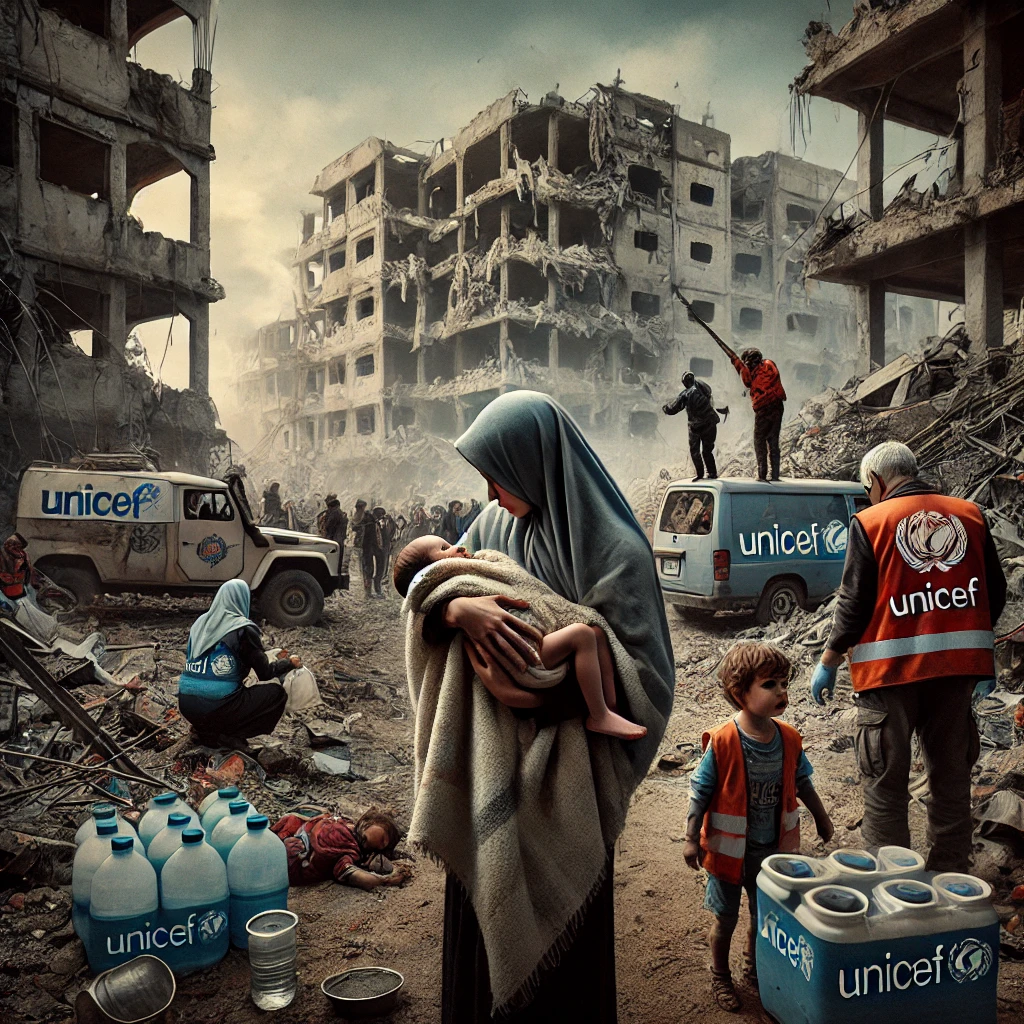Intensifying Gaza Offensive Risks Humanitarian Collapse, Violates International Law
Already, over 85% of Gaza’s population—more than 1.7 million people—have been internally displaced since October 2023, according to UN estimates.

The ongoing humanitarian catastrophe in Gaza is entering an even more perilous phase, as reports emerge of Israeli plans to forcibly transfer the enclave’s population into a small southern zone and pursue deportations of Palestinians outside the Strip. These actions appear to mirror tactics historically associated with ethnic cleansing, heightening global concerns about the potential for atrocities and crimes against humanity.
Forcible Displacement and the Fragmentation of Gaza
In recent weeks, Israeli military and political officials have signaled intentions to push the remaining Palestinian population into the southernmost area of Gaza, an already overcrowded and devastated space. This strategy, which has followed months of bombing campaigns and the decimation of civilian infrastructure, signals a drastic escalation in the effort to displace Palestinians from their homes permanently.
Already, over 85% of Gaza’s population—more than 1.7 million people—have been internally displaced since October 2023, according to UN estimates. The proposed forced relocation would further constrict their movements and living conditions, concentrating a massive population in a narrow zone with no access to safe shelter, food, or water.
Such a policy, if implemented, may constitute a grave breach of the Fourth Geneva Convention, which prohibits the forcible transfer or deportation of civilians in occupied territory. It also echoes the International Court of Justice’s 2024 Advisory Opinion that warned against policies that would render life in Gaza incompatible with the survival of its population as a group.
Military Strategies Have Failed to Deliver Peace or Security
Since the resurgence of hostilities in late 2023, Israel has pursued a strategy of overwhelming military pressure on Gaza, including airstrikes, ground incursions, and siege tactics. Yet despite these aggressive operations continuing for over a year and eight months, they have failed to achieve any of their stated long-term goals—including the release of Israeli hostages or neutralizing Hamas.
Instead, the result has been catastrophic loss of life and destruction. Tens of thousands of Palestinians, many of them women and children, have been killed or wounded. Gaza’s once-fragile infrastructure—hospitals, schools, roads, power stations—has been laid to waste, pushing the territory to the brink of collapse.
Far from restoring peace or security, the continuation of this strategy appears only to deepen the conflict and inflame regional tensions. Humanitarian agencies warn that a further escalation could lead to a death toll and refugee crisis without precedent in the region’s modern history.
Starvation and Collective Punishment: A War Crime in Progress
Perhaps the most disturbing element of the current crisis is the ongoing siege that has blocked the entry of essential goods into Gaza for over nine weeks. The blockade has left residents without clean water, electricity, sanitation, or medical supplies. Most critical of all, food has become nearly impossible to access.
Reports from the UN and humanitarian organizations have described Israeli strikes on community kitchens, food distribution centers, and convoys carrying humanitarian aid. Civilians attempting to maintain some semblance of order—local police, emergency responders, aid workers—have also been targeted.
The deliberate deprivation of necessities with the intent to starve civilians, especially as a tactic of war, is a violation of international humanitarian law and is considered a war crime under the Rome Statute of the International Criminal Court.
Upholding International Law Is the Only Path Forward
The International Court of Justice (ICJ) has made clear that only strict compliance with international law can pave the way toward a sustainable resolution of the conflict. Its 2024 Advisory Opinion, along with a series of provisional measures, instructed all parties—particularly Israel—to avoid actions that would exacerbate the humanitarian situation or amount to the targeting of civilians.
Yet those rulings have largely gone unheeded. Instead, the continuation and intensification of operations in Gaza are pushing the region ever closer to the edge.
The international community, including the United Nations, the European Union, and states with leverage over Israel, must act decisively. This includes the enforcement of ICJ rulings, the reinstatement of humanitarian corridors, and the establishment of immediate ceasefires to allow relief into Gaza.
Without these urgent interventions, the crisis in Gaza will evolve not just into a humanitarian catastrophe but a historic moral failure of the international order.
ALSO READ
Amid Continuing Conflict, Humanitarian Crisis Deepens in Gaza
Gaza Under Siege: A Humanitarian Crisis Deepens
Escalation in Gaza: Israeli Strikes Intensify Amid Humanitarian Crisis
New U.S.-Backed Aid Plan Set to Counter Gaza Humanitarian Crisis
Gaza Community Kitchens Shut: A Humanitarian Crisis Looms










